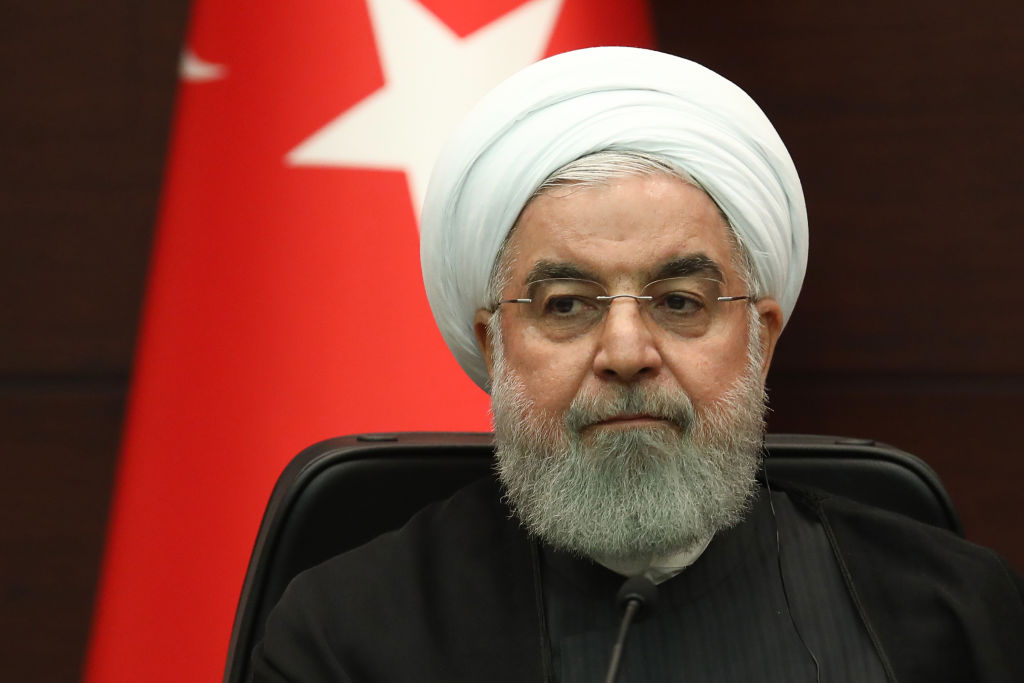More than six in 10 queer people from Iran have been assaulted by anti-LGBT+ family members, and almost half have been sexually assaulted in public, according to a new report.
The report, titled Hidden Wounds: A Research Report on Violence Against LGBTI in Iran, details the shocking violence queer people in the Western Asian country face on a daily basis.
LGBT+ people in Iran often face violence and discrimination, and sex between people of the same gender is illegal and can be punishable by death or imprisonment.
The new report, released by advocacy organisation 6Rang, reveals just how widespread anti-LGBT+ violence is in the country.
20 per cent of queer people who completed an online survey for the organisation said they had experienced violence in the legal system, while 46 per cent said they had experienced similar discrimination in the education system.
19 per cent of respondents said they had experienced violence in the healthcare system, while more than 20 per cent said they had faced violence from a romantic partner.
Shockingly, 63 per cent of queer people said they were subjected to violence by their immediate family, while 49 per cent said they had experienced such treatment from friends or classmates.
Elsewhere, 38 per cent said they had faced violence from their extended family, while 52 per cent said they had experienced ill-treatment in public because of their sexual or gender identity.
A whopping 42 per cent of queer people said they had been sexually assaulted in public, indicating that sexual violence is alarmingly common against LGBT+ people in Iran.
Queer people recounted their horrific experiences of sexual assault and violence in Iran.
6Rang has urged Iran to urgently scrap its laws criminalising same-sex sexual relations, and has asked international advocacy organisations to heap pressure on the country’s government to improve its treatment of queer people.
The results were collected through an online survey, with respondents encouraged to share their experiences of violence.
One person recounted their experience of being arrested by police when they were found in a car with their boyfriend.
“They told us, ‘What are two boys with such an age difference doing at this time of the night?’ Then, they took us to the police station and called our parents. After that, I could not see my boyfriend.”
A trans person said they were arrested, flogged and threatened with sexual assault by police officers.
“I complained to the police many times because of being assaulted the streets and on the metro, but because I had an earring, they asked me, ‘why are you like this?’ meaning feminine,” the trans person said.
“I told them I am transgender. Then, they [the police] wanted to have sex with me and abuse me. When I didn’t accept that, they detained me for many days. After that they sent me to the court and the legal doctor.
“They kept threatening me that if they find out I have had sex with a man, they will hang me. After two weeks they finally released me, but all this time they had not even informed my family about me.”
Many young people shared their experiences of anti-LGBT+ violence in school. One person said they are “always alone” because anyone who becomes close to them is called a “f****t” by their peers.
One boy said that he is regularly sexually assaulted at school because he is not as “muscular” as other boys.
In one particularly disturbing account, a student said three boys forcibly stripped him and took photos of him.
He was later raped by one of the boys and was told that his nude photos would be leaked if he told anybody about the sexual assault.
They kept threatening me that if they find out I have had sex with a man, they will hang me.
6Rang appealed to the media in its report to “show sensitivity and pay due attention” to the horrific levels of violence faced by LGBT+ people in Iran.
According to Iran International TV, human rights activists in the country believe that between 4,000 and 6,000 gay men and lesbian women have been executed in the region since the Islamic Revolution of 1979.
Aram Bolandpaz, An LGBT+ activist and journalist with Iran International TV, said police in the country routinely attack anyone with “behaviour, mannerisms, interests, appearance, or expression” that is “different”.
“Police like to pick on people who are softer; police like to bully men who are not as tough; they somehow find comfort by tormenting those people who do not fit the perfect picture of a powerful man or a needy woman,” she said.
“Everyday LGBTQIA Iranians live in daily fear of punishment simply for being who they are. In Iran, I was not given a choice about my own identity. Instead I felt the need to conform to a lifestyle which I did not feel connected to.”
Readers affected by the issues raised in this story are encouraged to contact Samaritans free on 116 123 (www.samaritans.org) or Mind on 0300 123 3393 (www.mind.org.uk). Readers in the US are encouraged to contact the National Suicide Prevention Line on 1-800-273-8255.
